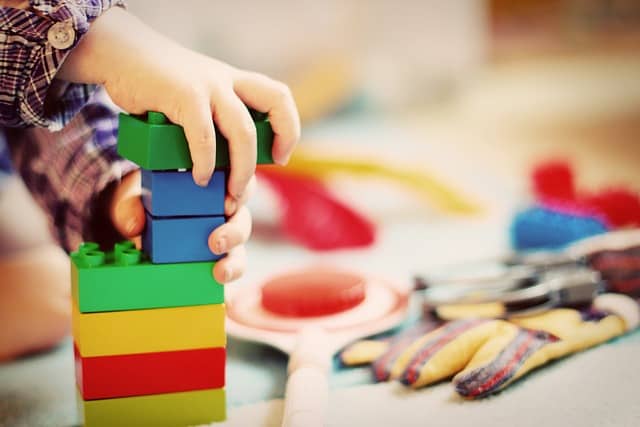Are you considering enrolling your child in a Montessori academy? Maybe you’re new to the subject and you just want to understand some basics about what you’re getting into. You might be asking, “is there even a Montessori near me and if not what are my options”? The good news is this article provides everything you need to know to take the next step in your Montessori education journey.
A Montessori classroom places emphasis on hands-on experience and encourages independent thought. Children are encouraged to explore objects and materials, such as blocks, sandpaper, and paintbrushes, and they work together to complete projects. Teachers guide students in their explorations, encouraging them to ask questions about what they see and hear. Students spend most of their time engaged in self-directed learning, where they are free to choose how they want to proceed.
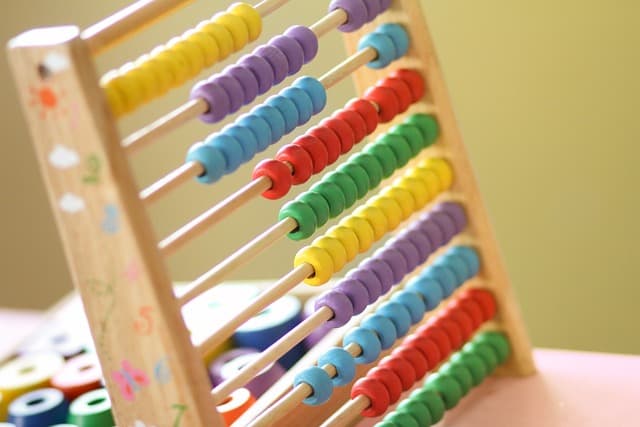
Montessori Near Me, Where Do I Start?
Below you will find a link to a directory and map that you can search to find the nearest montessori school to where you live. However, I do think it is important to first talk about what you should be looking for in a nearby Montessori. The closest location may not necessarily be the best fit. It’s best you understand how to research, ask the the right questions, and make the best choice.
Besides some of the more obvious characteristics of choosing a school like the right teacher-student fit, transportation options etc, there is something else you need to think about. While Montessori does in fact reference a very specific style of educational development, it is often referenced more broadly to just mean a hands-on teaching style.
In fact, there are many different early education styles very similar to the Montessori approach that focus on hands-on learning. For example there is the Waldorf education style, Reggio Emilia style, and many more. We’ll talk about these in more detail in the next section, but it’s important to have a good grasp on the right style before sitting down to search for the closest ‘Montessori near me’.
Once you are, actually, sure this is the specific learning style that’s right for your child and your family, then feel free to use the below directory to find a nearby academy.
Montessori Near Me Directory: http://schools.guidedstudies.com/search/
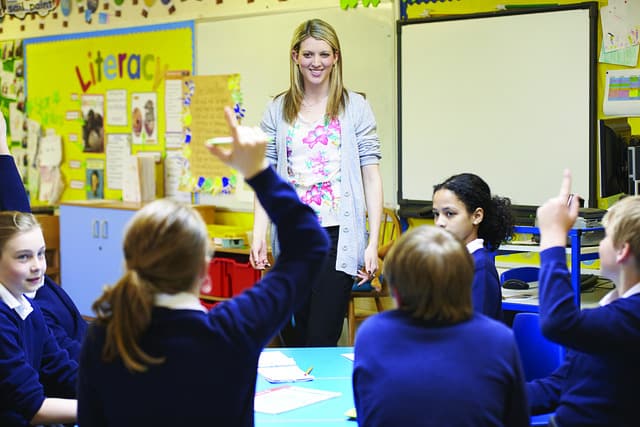
Finding a Montessori Academy For My Child
Before you even start your searching for the Montessori academy you need to be aware of all your options. You also want to understand the different types of education and versatility you can receive from different styles. As mentioned above many people use this term pretty loosely to refer to hands-on or experiential based learning. This Montessori Near Me Guide is really aimed at making sure you are pointed in the right direction before you get too far into your research.
We are going to take a second to dive deeper into understanding the different styles so when you start looking for a montessori academy for your child, you will know your options. In addition to Waldorf and Reggio Emilia learning styles referenced above, some other hands-on teaching methods include HighScope, Harkness, and Sudbury.
What is Waldorf Education?
This is also sometimes refereed to as Steiner Education, and focuses on developing the whole person rather than the relentless pursuit of achieving benchmarks. It encourages children to develop at a pace unique to them, and incorporates emotional and creative development as a crucial part of the curriculum.
What is Reggio Emilia Education?
Reggio Emilia places a large emphasis on learning through working and communicating with others. Children are highly encouraged to create their own learning paths and to operate within a community of others. Learning to be expressive is a key characteristic of this learning style.
What is HighScope Education?
A HighScope approach to education focuses on the individual child’s strengths and weaknesses in learning new things. It promotes decision making and self-discipline to teach life long learning skills.
What is Harkness Education?
The Harkness teaching style promotes group discussion and often involves the students sitting in an oval facing one another. This education method actually has very little teaching from outside the students and their peers. They are encouraged to learn from each other by listening and communicating.
What is Sudbury Education?
In the Sudbury teaching method there is really no set curriculum. In fact, children are encouraged to set their own curriculum and spend their time as they like based on their interests. Classrooms are made up of all different age ranges. Students are meant to be taught community building and how to relate to other students both older and younger.
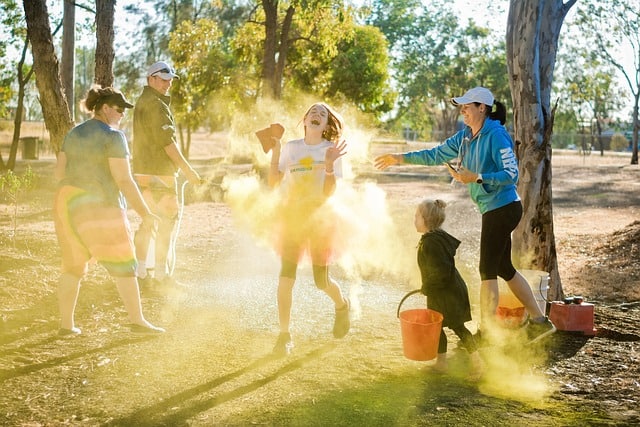
Montessori Parenting, What To Know
Are you a parent new to montessori education, or maybe a new parent altogether? If so, you’re in the right place as we are going to go over some details of what montessori parenting is all about.
First off, it is important to note that Montessori Parenting is not just about sending your child to a Montessori school. It is more about the philosophy behind this style of learning in every aspect of their life. The main idea behind Montessori parenting is that children should have the freedom to explore their world without being forced into a certain learning path they are not ready for.
As a parent, you may feel overwhelmed by the thought of having to make sure your child is doing everything he/she needs to do. However, if you follow the Montessori method you have some flexibility in the pace at which your child learns. This education style recognizes children have different strengths and interests. It encourages parents to allow typical educational rules to be bent around the specific individual.
Use Adult Sized Words With Your Kids
One practice that is great to get in the habit of is using more complex words around your child, even at a young age. It is easy for us as parents to try to use simpler words around our kids. However, this is actually counterintuitive to their communication growth. The more they hear larger words being used they more quickly they will pick up on how to use them in their own communication.
The adage ‘children are like a sponge’ ironically is quite true. Kids learn very differently than adults as their senses are more alert and they haven’t developed the same patterns that adults have just yet. They learn what they are exposed to, which is why it is very important to be intentional with how we help foster their communication skills.
Also, be sure to pay attention to what your kids are saying, the words they use, their behavior, interests, etc. This allows parents to pick up on areas that our children might be struggling with. It also can give us an indication of what they are really good at or what they really enjoy, which enables us to cater to those opportunities.
Teach Respect As A Give And Receive
The Montessori principles are foundation-ally about allowing children to discover the world around them in a natural way. An important aspect of this is respect. Let your children know that you respect them as an individual, but this is also something that we earn as individuals through the decisions we make and how we act. It’s alright to give your child freedom ‘within limits’ to make the choices that are worthy of respect and to also learn the consequences that come with not making respectable decisions.
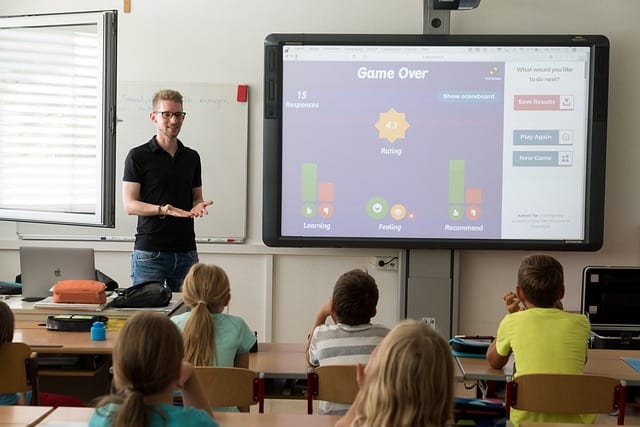
Montessori vs Traditional Education
Montessori vs traditional education where do we start? There are a lot of differences, but they are certainly aiming towards a similar goal. There are also different perspectives of how effective each of these styles of education are to early learners.
Traditional schools tend to focus on memorization and rote learning. They are focused on getting kids to pass tests and get good grades. These schools are usually structured in such a way that teachers can easily control the environment and keep order.
On the other hand, Montessori schools are much less rigid than traditional schools. Teachers work closely with students and encourage them to develop their own ideas and opinions.
Montessori schools are typically smaller and more intimate environments. Children are given the opportunity to express themselves freely and explore their surroundings in a more unstructured way than would typically be seen in a traditional classroom.
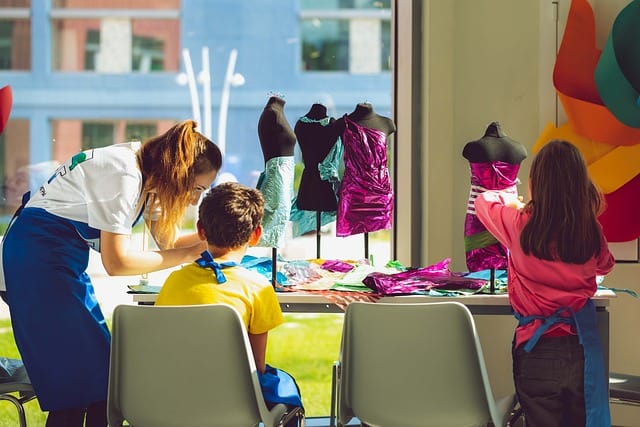
Montessori Classroom Education
As you know by now the Montessori classroom education experience is very different than traditional early educational classrooms. However, there are are a few very specific differences you probably want to understand about the classroom itself.
The first thing to consider when thinking about the classroom is the size. A typical classroom will be small enough to fit around 20-30 students. This allows for plenty of interaction between students and teachers.
Another difference is the materials used in the classroom. Instead of using desks and chairs, most classrooms use tables and shelves. This makes it easier for children to move around and interact with one another.
Another major difference is the teacher’s role. In a traditional classroom, the teacher is responsible for teaching the entire class. In a Montessori classroom, the teacher works directly with the students to help them learn.
In addition to the classroom, there are many other aspects of a Montessori education. For example, the curriculum is designed to teach children through play rather than through reading and writing.
Montessori schools often emphasize independent learning. Students spend time working alone or with peers outside of the classroom. This gives them the chance to practice skills like problem solving and critical thinking.
Finally, a Montessori classroom places an emphasis on social development. This means that children are encouraged to work together as well as individually.
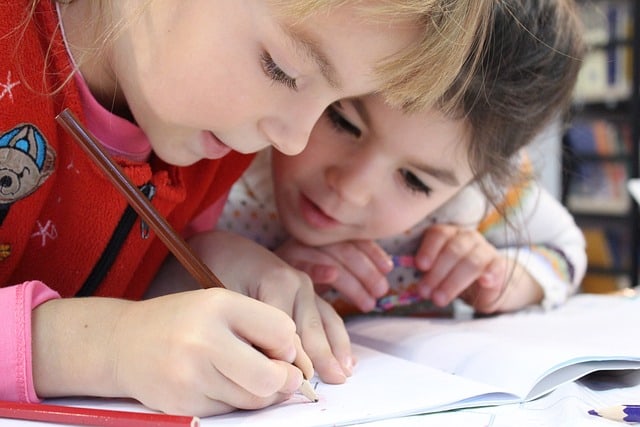
What To Look For In A Montessori Learning Center
Now that you understand a little more about what you’re getting in to, you are ready to examine which Montessori learning center could be right for your child. You may not have realized that the typical classroom environment is not your only option.
In addition to finding a local Montessori academy you can also find some great online resources, including completely virtual schools. You might be thinking online learning is a contradiction to the Montessori method. It’s true there may be some challenges to overcome, but if you are determined you can certainly make it work for your child.
In addition to fully online virtual programs there are also a lot of great hands-on learning kits you can order for your kids. These kits can cover almost any subject area and can be designed for most age ranges.

Is Montessori Homeschool Possible?
More families are starting to ask if Montessori homeschool is a possible combination. You might be surprised, and after all a Montessori Near Me Guide wouldn’t be complete without talking about what’s available right in your own home. We are going to evaluate a few of the challenges and advantages so you can better understand how to proceed if you are set on Montessori education for your child but would still prefer to homeschool as well.
First let’s talk about the advantages. The main advantage of homeschooling is that it provides ultimate flexibility, which is certainly something promoted heavily in this teaching style. Homeschoolers don’t need to worry about school schedules or lesson plans in the same way.
On the other hand, homeschoolers do miss out on the extra support they get from a traditional montessori classroom setting. They might miss the opportunity to develop the same social and communicative skills found at an in-person academy.
The biggest challenge to combining these two methods is making sure your child gets enough academic instruction while maintaining his or her independence. If you decide to combine the two methods, you will want to ensure that your child has access to a quality virtual academy or co-op mentioned above.
Montessori Homeschool Curriculum
Maybe you’ve already bought into this style of early education, and now you just want to know the right Montessori homeschool curriculum to get started with. There are several curriculum builders, lesson plans, and calendars you can sign up for online. However, many of them are designed for a younger audience.
One option is NAMC’s Montessori homeschool curriculum guide. It is really best for ages 3 to 6 and is not cheap at almost $700 at time of writing. However, you do get enough content to guide you through 3 years. Here is the link if you want to check it out https://www.montessoritraining.net/montessori-home-schooling/.
Another option is ShillerLearning. They offer a lesson plan builder, educational coach, and several other types of supporting material you can use to build your curriculum at home. They do not show their prices upfront, so you will likely have to reach out to them directly. Here is the link to their website https://explore.shillermath.com/.

Montessori Kindergarten, What To Know
Most families that decide on this style of early education want to start with a Montessori kindergarten or pre-k program as this is the age in which it is likely to be the most effective.
Many people may know the Montessori method as being a technique for, very, early childhood education. In reality though, there are schools that use this teaching style all through lower elementary and higher. Depending on when your child starts attending an academy, kindergarten could be the first or the last grade on your Montessori journey. I’ll explain.
A huge part of this teaching method is that children learn in parallel with student’s of different ages. So if you enrolled early in a Pre-K program Kindergarten is often the last grade in that school, meaning most other students are younger. However, if you transition or start a lower elementary Montessori program, Kindergarten may be the earliest grade supported.
Even if you are doing a homeschool program there are likely some milestones your child should start in kindergarten, like reading. As mentioned above a primary difference between a Montessori and traditional kindergarten experience is that your child will be taking the lead in the pace at which they learn.
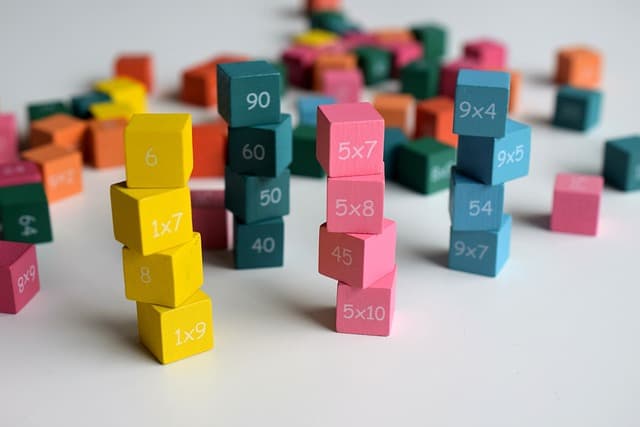
Montessori Math Lessons
Can Montessori math lessons be effective? With so much emphasis on STEM education, this is a pretty popular question. After all, math can be a pretty tricky subject to teach, and even trickier to learn.
The Montessory approach to math focuses on the use of sensory development and recognition. In other words, children learn through touching and moving objects. The general idea is to provide age-appropriate objects that can be manipulated in a way that shows the progression from simple to complex ideas.
Some great examples of objects used to develop math skills are Colored Bead Bars, Sandpaper Numbers, Dot Matrix Game, Geometrical Blocks. Most of these are great for developing math skills in ages 4 to 6, but more advanced tools can certainly be used for older kids.
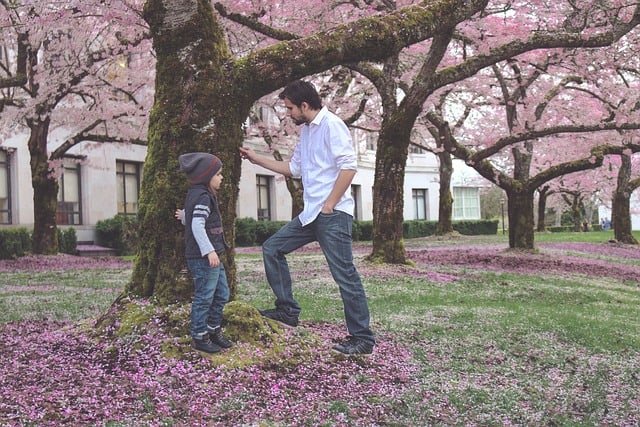
Montessori Discipline, The Do’s & Don’ts
Many people ask if there is a special style of Montessori discipline that should accompany this teaching method. So many other characteristics are different with this style of learning that this question only makes sense.
Keep in mind that Montessori education is all about focusing on independence, self-sufficiency, and collaboration. These are all things that help children become independent learners. They also help them grow into responsible members of society.
This means that discipline involves helping children to recognize that they need to be able to control themselves and manage their own behavior to function in society. This is where the emphasis in learning around children of different age groups plays a big part.
Discipline is typically presented in the form of helping students to understand the consequences their actions lead to and why certain actions are not the best idea.
Summary
Hopefully this Montessori Near Me Guide has been helpful in understanding what this educational method is all about. If you are just starting your research into this teaching style, remember to take a deeper dive into understanding the similar techniques referenced in this article to ensure this is indeed the right path for your child.
If you do decide to proceed the good news is that there are many great Montessori Academy options in every state, so regardless of where you are you are likely going to able to find a good fit. There are even some great options if you want to try homeschooling. However, you do want to understand some of the obstacles that could be associated as well.
The most popular time to enroll your child in a Montessori educational program is between Pre-k and Kindergarten, but there are several options out there for higher grade levels as well. More advanced subjects can also be taught, including Math and Science.
Many families absolutely love this style of education, especially for early childhood development, and there is a lot of supporting research out there. However, everyone is different, so make sure you are informed and that you make the best decision for your family. Lastly, if you decide this is something you want to pursue further we do link to the Montessori Near Me Directory above so you can find local Academies.
Montessori Near Me Guide Top Academies Around The US
Saint Mary’s Hall: San Antonio, TX PK – 12
Alcuin School: Dallas, TX PK – 12
Cincinnati Country Day School: Cincinnati, OH PK – 12
Pioneer Academy: Wayne, NJ PK -12
Beacon Academy: Evanston, IL 9 – 12
Pinnacle Academy: Chantilly, VA PK – 12
Visitation Academy: Saint Louis, MO PK – 12
NewGate School: Sarasota, FL PK -12
As a side note, if you love hands on learning activities you can experience with your kids we have a plethora of them every Fall. Make plans to visit our Living History Farm and Pumpkin Patch during October. We have all sorts of activities that are great supplements of Montessori education, where kids get to actually experience different parts of history. They also learn first hand the importance that farming plays in our society.

